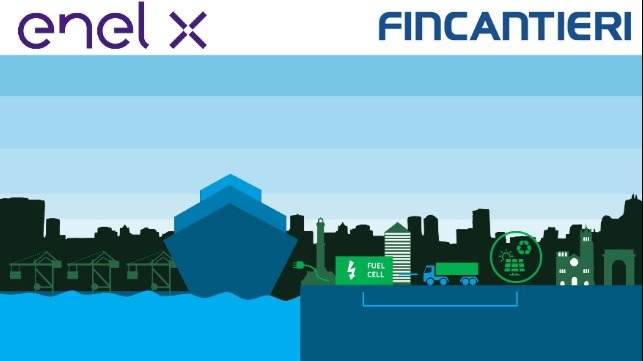Enel X & Fincantieri Commit to Energy Transition for Italian Ports

Enel X and Fincantieri have signed a letter of intent to work together on building and running next-generation port infrastructure with a low environmental impact and developing electricity-powered solutions for ground logistics services. In its first stage dedicated to projects with a national scope, the agreement specifically pertains to: cold ironing, which refers to providing a shoreside power source to docked ships; management and optimization of energy exchanges in new infrastructure; electricity storage and production systems that use renewable sources and fuel cells. The partnership will also ensure that initiatives rolled out in Italy can be replicated in other countries, such as Spain, Portugal and Greece. The letter of intent might be subject to future binding agreements that the parties will define in compliance with the applicable normative and regulatory profiles, including those relating to transactions between related parties.
The collaboration between Enel X, Enel's global business line, and Fincantieri, one of the world's largest ship builders, will energize the implementation of electricity-based solutions and decarbonization at ports. A growing number of ports and docks in Italy, and subsequently in other European countries, will offer cold ironing. This initiative will lead to the creation of a far-reaching European cold ironing network.
“Maritime transport accounts for a significant portion of greenhouse gas emissions. It is estimated that CO2 emissions from the maritime sector amount to 940 million tons every year, or 2.5% of global greenhouse gas emissions. Enel and Fincantieri are joining forces to promote the decarbonization of powering docked ships," said Eliano Russo, Head of e-Industries at Enel X.
“Ninety per cent of Europe's ports are located in metropolitan areas, and public opinion in many cities has decried the pollution, noise and vibrations caused by the engines of docked ships. Development of cold ironing infrastructure will prevent this, as docked ships will have an electrical connection onshore. Today, digitalization, sustainability and innovation allow us to offer smart, efficient technologies that will reboot Europe's port and maritime sectors".
The products and services herein described in this press release are not endorsed by The Maritime Executive.

